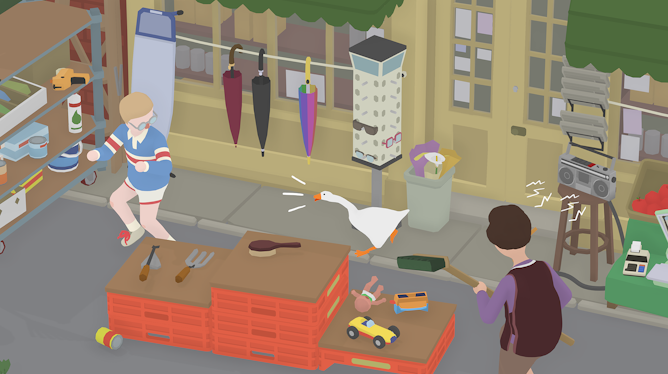|
|
|
Editor's note
|
|
This newsletter has more than 100,000 readers. Does knowing that make you more inclined to like it? Facebook thinks so, and that’s one reason the social media platform has decided to trial hiding the numbers of likes on posts. (The stated aim is to encourage people to “focus on the quality of their interactions and the quality of their content”.)
The change is the latest in a string of tweaks to social media interfaces and recommendation algorithms designed to minimise the unpleasant side-effects of online life as we know it, which range from damaging young people’s self-esteem and amplifying fake news to helping the spread of child abuse material and promoting radicalisation.
Can such small adjustments really have any meaningful effect on our behaviour? In the first entry in a new series exploring the attention economy, UTS researcher Marian-Andrei Rizoiu digs into the science of online popularity. The research says hiding likes might make a difference to the quality of Facebook posts – but, either way, the hidden rules that determine what content ends up in front of our eyeballs are a force to be reckoned
with.
|
Michael Lucy
Deputy Science + Technology Editor
|

|
|
Top stories
|

On Facebook, we like what other people have already liked before us.
Shutterstock
Marian-Andrei Rizoiu, University of Technology Sydney
Research shows that hiding the popularity of posts can change what people consume, and even improve the overall quality of content.
|

Turkish and US troops on patrol in northern Syria. President Donald Trump has announced he plans to withdraw US troops from the region, paving the way for great destabilisation.
AAP/EPA/Sedat Suna
Tony Walker, La Trobe University
The US president's latest announcement portends a worrying outcome in a part of the world riven by years of conflict.
|

Prospective tenants need to make a good impression on the real estate agent who will decide who gets to rent the property.
Shutterstock
Bronwyn Bate, Western Sydney University
Two-thirds of tenants in Australia rent through an agent, so making a good impression on the agent matters. Certain characteristics count in tenants' favour, but some factors are beyond their control.
|

Untitled Goose Game is an indie game where you are a horrible goose – and it is a global phenomenal success.
House House
Luke Brook, Edith Cowan University
Untitled Goose Game is a global phenomenon out of an indie games house in Melbourne. Its success shows us where a little investment in games can lead.
|
Arts + Culture
|
-
Rachel Morrison, Auckland University of Technology
Some of the latest findings about open-plan offices suggest that staff satisfaction and privacy decrease, people become less friendly and women feel watched and appraised on appearance.
-
Sandra D'urso, University of Melbourne
20 years on from Who's Afraid of the Working Class? In Anthem, the Melbourne public transportation system behaves as a microcosm of larger political tensions and anxieties.
|
|
Health + Medicine
|
-
Emma Beckett, University of Newcastle; Tamara Bucher, University of Newcastle
When a manufacturer lists a serving size on their food label, it's based on their expectations of what you'll eat, not what the dietary guidelines recommend.
|
|
Education
|
-
Denise Jackson, Edith Cowan University; Ruth Bridgstock, Griffith University
Graduate employment outcomes will determine 40% of the $80 million extra government funding for universities. This is a problem for three reasons.
|
|
Environment + Energy
|
-
David Hall, Auckland University of Technology
People are more likely to deny climate change if they're inclined toward hierarchy, have lower levels of education or are more religious. But the strongest predictor of denial is a person's politics.
-
Patrick O'Connor, University of Adelaide; Stuart Collard, University of Adelaide; Thomas Prowse, University of Adelaide
Public opposition to kangaroo culls shouldn't overrule the needs of thousands of other native species in national parks.
-
Samuel Alexander, University of Melbourne
Democracy is not perfect. Sometimes it produces policies that are undemocratic and unjust. In those cases, breaking the law may be justified.
|
|
Business + Economy
|
-
Claire Wright, Macquarie University
Paying a chief executive $24 million because he has exceptional abilities is a con we've perpetrated on ourselves.
|
|
Politics + Society
|
-
Michelle Grattan, University of Canberra
Sometimes birthdays are best let pass quietly. The Liberals are finding the 75th anniversary of their founding another unfortunate occasion for the blood sport they thought they'd put behind them.
-
Faith Gordon, Monash University; Noam Peleg, UNSW
In a recent report, the UN Committee on the Rights of the Child was highly critical of the Australian government for its youth justice failures and the rise of children with mental health issues.
-
Chrisanthi Giotis, University of Technology Sydney
Some refugees have been waiting to be resettled for almost a decade, and their broken trust is visceral.
-
Dominic O'Sullivan, Charles Sturt University
Academic freedom protects free speech, but also conditions it. Knowledge cannot be tested and doesn’t advance if there isn’t also a duty to be well informed and reasoned.
|
|
Science + Technology
|
-
Joss Bland-Hawthorn, University of Sydney
New research shows the supermassive black hole at the centre of the Milky Way spat out an enormous beam of radiation 3.5 million years ago
|
|
| |
Featured jobs
|

|
University of Western Australia — Perth, Western Australia
|

|
University of Melbourne — Parkville, Victoria
|

|
Department of Jobs, Precincts and Regions — Attwood, Victoria
|

|
RMIT University — Melbourne, Victoria
|
|
|
|
| |
| |
| |

|
| |
| |
| |
Featured events
|

|
UNSW CBD Level 6, 1 O'Connell Street,, Sydney, New South Wales, 2000, Australia — UNSW
|

|
TBC, Wellington, 5000, New Zealand — Australia New Zealand School of Government
|

|
Treasury Theatrette, 1 Macarthur Street, East Melbourne, Melbourne, Victoria, 3000, Australia — Australia New Zealand School of Government
|

|
Carriageworks, Eveleigh, New South Wales, 2015, Australia — UNSW
|
|
|
|
| |
| |
| |
| |
| |
|
|
|
|
|
|
|